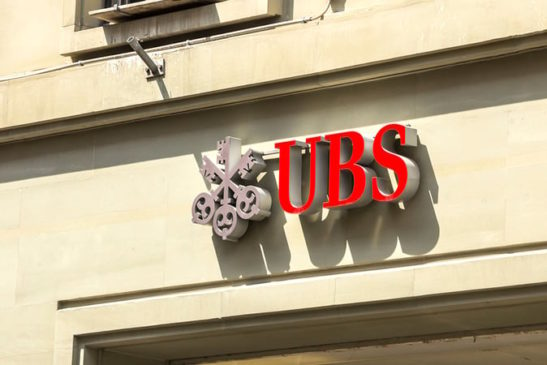As part of a government-backed rescue plan earlier this year as well as a bid to prevent any financial market instability, UBS acquired Credit Suisse in a $3.2 billion deal.
The long-awaited conclusion of the Credit Suisse Group AG (SWX: CSGN) acquisition by investment banking giant UBS Group AG (SWX: UBSG) may happen “as early as June 12”.
This will signify the birth of a massive Swiss bank with a balance sheet of $1.6 trillion. All that is left for the deal to be completed is its registration statement and according to UBS, this covers shares to be delivered, being declared effective by the United States Securities and Exchange Commission (SEC), and other remaining closing conditions.
Once the take-over process is done, each Credit Suisse stakeholder will be eligible to receive one UBS share for every 22.48 shares they previously held. Also, a restructuring process will see that Credit Suisse shares and American Depositary Shares (ADS) are removed from the SIX Swiss Exchange and the New York Stock Exchange.
Zuercher Kantonalbank analyst Michael Klien said, “We consider the completion of the takeover to be an important step in initiating what we see as a protracted integration process and getting things done. Although the risk profile of UBS has changed significantly, we see good opportunities for investors.”
Together as a single unit, the new bank will have $5 trillion of invested assets.
UBS Decides on Phased Integration of Credit Suisse
The Swiss largest banking firm has been on the acquisition of Credit Suisse for a few months now. As part of a government-backed rescue plan earlier this year as well as a bid to prevent any financial market instability, UBS acquired Credit Suisse in a $3.2 billion deal. At that time, the cost of the acquisition was a 60% discount from the bank’s $8 billion market capitalization.
The deal attracted the attention of the Swiss National Bank, the Swiss Federal Department of Finance, and the Swiss Financial Market Supervisory Authority (FINMA). Specifically, the Swiss National Bank pledged debt support to facilitate the acquisition. Shortly after, the shares of both entities plunged significantly but this did not deter UBS as it went further to appoint Sergio Ermotti, UBS Group’s former Chief Executive Officer (CEO) as the new CEO to supervise the takeover.
Also, Ulrich Koerner, the CEO of Credit Suisse was granted a seat on the board of directors of the new venture. The plan was to keep Koerner in charge of maintaining Credit Suisse’s operational continuity and client focus while also assisting the integration process.
The deal was, however, about to take another turn last month when concerns were raised about the volume of losses which UBS could incur upon finalizing the acquisition. As reported by Coinspeaker, UBS was likely to incur a financial loss of around $17 billion from the takeover. Precisely, $13 billion represents liability in fair value adjustments for the rebranded mega financial firm while the other $4 billion was from legal and regulatory costs.
Bearing this in mind, UBS decided to undergo a phased integration which could likely go on for the next couple of years.
Benjamin Godfrey is a blockchain enthusiast and journalists who relish writing about the real life applications of blockchain technology and innovations to drive general acceptance and worldwide integration of the emerging technology. His desires to educate people about cryptocurrencies inspires his contributions to renowned blockchain based media and sites. Benjamin Godfrey is a lover of sports and agriculture.



